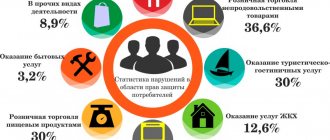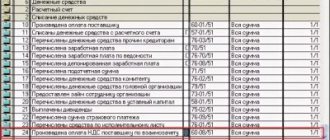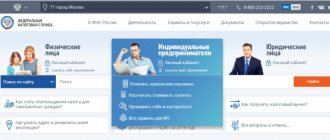The Ministry of Labor of the Russian Federation is responsible for the development and implementation of state labor policy. This body is empowered to initiate legislative changes. The Ministry of Labor implements part of its functions through Rostrud and its territorial divisions in the form of state labor inspectorates. Labor inspectorates, present in every subject of the Russian Federation, act as intermediaries between authorities, employers and employees. Optimization of their activities is carried out through planning - work schedules for inspections are drawn up annually, data on plans for the next calendar year are published in advance. But for some employers, unplanned events are also possible.
General violations in the field of labor law
On January 1, 2015, Federal Law No. 421 of December 28, 2013 came into force, which introduced changes to the Code of Administrative Offenses: it divided violations of labor legislation into different elements of administrative offenses, increased liability, and increased penalties.
Most often, in the reports based on the inspection results, inspectors note the following general violations of labor legislation:
- the employer approves local regulations without taking into account the opinion of the elected body of the primary trade union organization;
- the employment contract does not include a record of the employee receiving his copy in hand (Article of the Labor Code of the Russian Federation);
- there is no seal or wax seal on the book of accounting for the movement of work books or the book of records of work book forms - this is an outdated, but not yet canceled requirement (Resolution of the Government of the Russian Federation dated April 16, 2003 No. 225);
- in violation of the requirements of Art. 140 of the Labor Code of the Russian Federation, settlements with employees were not carried out on the day of their dismissal;
- in violation of Art. 236 of the Labor Code of the Russian Federation, monetary compensation for delays in payment when dismissing employees is not accrued and is not made;
- vacation records are not kept in the employee’s personal card (Resolution of the State Statistics Committee of Russia dated January 5, 2004 No. 1);
- personal cards of employees do not contain signatures confirming familiarization with records of hiring, transfers and dismissals (clause 12 of the Decree of the Government of the Russian Federation of April 16, 2003 No. 225).
Penalties
| Violation of labor legislation, unless otherwise provided by Parts 3, 4, 6 of Art. 5.27 or Art. 5.27.1 Code of Administrative Offenses of the Russian Federation (part 1, 2 of Article 5.27 Code of Administrative Offences) | For officials | Warning or fine from 1,000 to 5,000 rubles. |
| For individual entrepreneurs | Fine from 1,000 to 5,000 rubles. | |
| For legal entities | Fine from 30,000 to 50,000 rubles. |
On what basis and what does Rostrud control?
Basic issues of monitoring compliance with labor legislation are included in a separate chapter in the Labor Code of the Russian Federation (Chapter 57). It is here that it is indicated that this process is carried out by the federal executive body, specially authorized for this, and its territorial divisions (Article 354 of the Labor Code of the Russian Federation).
Issues to be checked include:
- respecting the labor rights of workers;
- creating safe working conditions;
- occurrence of cases of industrial injuries;
- social security of workers;
- carrying out certification of workplaces.
For this purpose, state inspectors are granted the following rights (Article 357 of the Labor Code of the Russian Federation):
- unhindered access to employers' premises at any time of the day;
- requesting necessary documents, explanations and information;
- removal of samples for analysis with the execution of a report on this;
- independently conducting accident investigations or participating in such investigations;
- issuing mandatory orders: to eliminate identified violations;
- on bringing the perpetrators to justice, up to and including their removal from work;
- suspension of the activities of unsafe industries up to the submission of demands to the court for their liquidation;
- prohibition of the use of personal protective equipment that does not meet the requirements;
To find out what fine an employer will receive if there is no staffing table, read the material “Have you drawn up the staffing table for 2018?”
At the same time, inspection inspectors must strictly comply with the law, not allow infringement of the rights of employers and not disclose information that has become known to them that constitutes a secret at any of the existing levels.
Violation of wage rules
This is the most popular type of violations detected during GIT inspections. Most often, employers are caught for non-payment of wages and other charges, incomplete payment, violation of payment deadlines, and also for charging a salary less than that provided by law. In 2021, liability for violations in this area was once again tightened ( Federal Law No. 272-FZ dated July 3, 2016 ): for organizations, fines can amount to up to 50,000 rubles. Repeated violations are punished much more severely - up to disqualification, that is, deprivation of the head of the enterprise of the right to hold a position for a period of one to three years.
Penalties
| For officials | Fine from 10,000 to 20,000 rubles. |
| For individual entrepreneurs | Fine from 1,000 to 5,000 rubles. | |
| For legal entities | Fine from 30,000 to 50,000 rubles. | |
| Repeated violation of the legislation on wages, that is, the person was previously punished for a similar offense (Part 7 of Article 5.27 of the Code of Administrative Offenses of the Russian Federation) | For officials | Fine from 20,000 to 30,000 rubles. or disqualification from one to three years. |
| For individual entrepreneurs | Fine from 10,000 to 30,000 rubles. | |
| For legal entities | Fine from 50,000 to 100,000 rubles. |
As a rule, the head of the organization or an employee temporarily replacing him is held accountable for violations in the field of wages, but the chief accountant can also be held accountable if his guilt is established in the untimely payment of vacation pay or delayed wages.
Results
The need to verify the employer’s compliance with the requirements of labor legislation is included in the text of the main document on labor - the Labor Code of the Russian Federation.
Such activities are carried out by labor inspectorates, which are territorial divisions of Rostrud. Inspections are divided into scheduled and unscheduled. The frequency of scheduled inspections depends on the risk category assigned to the employer. From 01/01/2018, the subject of the scheduled inspection is limited to the approved list of questions related to a specific topic of the control event. You can find more complete information on the topic in ConsultantPlus. Free trial access to the system for 2 days.
Violations in the field of labor protection
Compliance with labor safety requirements is the responsibility of the company's management. For negligent attitude to the requirements for organizing safe conditions, the employer may be brought to administrative and even criminal liability. The same Federal Law of December 28, 2013 No. 421 (came into force on January 1, 2015) highlighted all violations in the field of labor protection in a special article - Art. 5.27.1 Code of Administrative Offences.
It contains a separate paragraph (clause 2 of Article 5.27.1 of the Code of Administrative Offences ) for violations of the procedure for conducting a special assessment of working conditions. During the inspection, the State Labor Inspectorate pays special attention to whether a representative of the trade union organization was included in the commission for conducting the special labor assessment, and whether compensation was awarded for harmful and dangerous working conditions. In addition, the employer is obliged to familiarize employees with the results of the assessment within 30 days against signature and post the results of the special assessment on the organization’s website.
Inspectors also have many questions about allowing employees to work (Clause 3, Article 5.27.1 of the Administrative Code). Some of the most common mistakes include:
- absence or improper maintenance of briefing logs, lack of a training program;
- failure to conduct training and knowledge testing on labor protection or training in non-accredited organizations (Procedure for training on labor protection and testing knowledge of labor protection requirements for employees of organizations, approved by Resolution of the Ministry of Labor and the Ministry of Education of the Russian Federation dated January 13, 2013 No. 1/29);
- lack of a commission to test knowledge of labor protection;
- absence of a list of contingents and a name list of persons subject to mandatory medical examination (violation of Order of the Ministry of Health and Social Development of Russia dated April 12, 2011 No. 302n);
- failure to conduct mandatory preliminary/periodic/pre-trip medical examinations (Article 213 of the Labor Code of the Russian Federation);
- failure to conduct mandatory psychiatric examinations in specialized clinics that have accreditation (Article 213 of the Labor Code of the Russian Federation, Decree of the Government of the Russian Federation dated April 28, 1993 No. 377 “On the implementation of the Law of the Russian Federation “On psychiatric care and guarantees of the rights of citizens during its provision” as amended on September 23. 2002).
Labor inspectorate inspections for 2021: types of inspections and procedures for conducting them
Labor inspectors can conduct scheduled and unscheduled inspections of employers. Verification activities can be based on documentary reconciliation methods or on working methods within the framework of on-site inspections.
Scheduled inspections are characterized by strict compliance with the employer inspection schedule approved in the previous year, published on the Rostrud website]]>.
The frequency of inclusion of an employer in the inspection plan depends on the risk group assigned to the business entity (clause of Resolution No. 875):
- for those who belong to the high-risk category in terms of labor violations, two-year intervals of inspection activities are provided;
- if the employer is in the category of business entities with a significant risk of detection of violations, an inspection is initiated once every 3 years;
- employers from the medium risk group are inspected every 5 years;
- the moderate risk category requires inspections every 6 years;
- For the low-risk category, routine inspections are not scheduled.
The conditions for dividing employers into risk groups are presented in the appendix to the “Regulations on Inspections” from Resolution No. 875. The labor inspectorate approved planned inspections for 2021 in 2017, the schedules are presented on the Rostrud website, in which employers are listed by region of the Russian Federation (more about see our article for the schedule of labor inspection inspections).
An unscheduled inspection by the labor inspectorate can be initiated for several reasons:
- violations were identified in the employer’s activities, the enterprise or individual entrepreneur was given an order to eliminate the shortcomings, and the allotted time for eliminating the shortcomings has expired;
- the labor inspectorate received an administrative document from the head of the federal inspection about the need to conduct an inspection at a specific enterprise outside the approved plan, in accordance with the instructions of the President or the Government of the Russian Federation;
- the presence of a prosecutor's order for an inspection;
- receipt from citizens, government agencies, the media and other sources of information about facts of understatement of salaries to staff, delays in paying income to employees, improper execution of employment contracts, etc. violations;
- The last option, when the labor inspection is not operating according to schedule, is to check based on a complaint against the company management or against an individual entrepreneur from employees.
During the inspection, labor inspectors can freely visit the employer at any time. When investigating injury cases and analyzing working conditions, samples of substances may be taken to submit them for laboratory examination. If violations are detected in the labor sphere, the labor inspectorate issues orders to eliminate them, including the restoration of previously violated rights of employees, bringing those responsible for these violations to disciplinary liability, etc.
When an unscheduled or scheduled inspection by the labor inspectorate is carried out, the employer may be required to submit personnel documentation, employment contracts, time sheets with pay slips, vacation schedules, local acts on bonuses for personnel, etc. The inspector has the right to request certificates of incapacity for work, constituent and administrative documentation of the company for review, and also request explanations from the employer or his representatives.
Based on the results of the inspection, a report is drawn up. Persons guilty of violations discovered by the labor inspectorate may be held accountable.
State Labor Inspectorate - GIT
So, you want to file a complaint against your employer or ask an inspector some question. To do this, you will need to perform the following steps step by step:
STEP 1 : Go to the official website at www.rostrud.ru and find the “Labor Inspection” section there.
Click on it.
Step 2 : Afterwards you will be taken to a page dedicated to the Rostrud organization. Your task: find an inspector in your region. This can be done in two ways:
- Option 1: In the search bar above the map, enter the name of your area. And then select them from the suggested list.
- Option 2: Find your area on the map, hover over it and click once.
Step 3 : You will be shown the contacts of the labor inspectorate for your region, and will also be asked to go to the regional website. Depending on what you need, choose the right solution.
Do you need legal advice on labor law and pensions?
? Then ask your question using the form below and we will answer you as soon as possible. It's free and won't take much of your time!
All information is encrypted via the secure https protocol. Your correspondence with a lawyer is securely protected.






